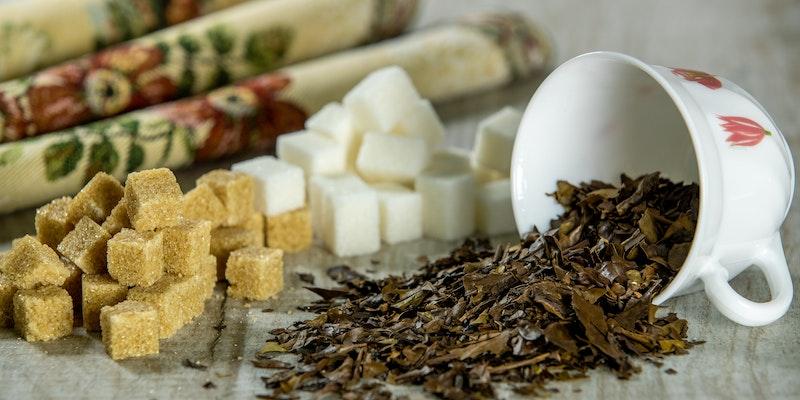The Debate on Artificial Sweeteners
Oct 09, 2023 By Nancy Miller
Artificial sweeteners spark significant debates due to health concerns. With increasing rates of obesity and diabetes, many seek sugar substitutes. Finding the best artificial sweetener means identifying one that's not only palatable but also beneficial or at least neutral for health. In this exploration, we'll weigh the advantages and disadvantages of these sweeteners, particularly emphasizing their impact on insulin, overall health, and regular use.
The Rise of Artificial Sweeteners
Artificial sweeteners emerged as sugar substitutes primarily for those watching their calorie intake or managing diabetes. A small amount is enough since they are hundreds to thousands of times sweeter than sucrose (table sugar).
Artificial sweeteners, including aspartame, saccharin, sucralose, and steviol glycosides (from stevia), are widespread. Each sweetener has its unique taste profile, stability, and application.
Benefits of Artificial Sweeteners
- Reduced Caloric Intake: The primary advantage of artificial sweeteners is that they offer sweetness without calories. For individuals looking to reduce or maintain a certain weight, they can be beneficial.
- Dental Health: Sugar is a primary contributor to tooth decay. Artificial sweeteners don't cause cavities like sugar because they're not cariogenic.
- Blood Sugar Management: Most artificial sweeteners have little effect on blood sugar, making them appropriate for many people with diabetes.
Artificial Sweeteners and Insulin

Artificial sweeteners may affect insulin, which regulates blood sugar. According to preliminary research, despite not raising blood sugar, these sweeteners may enhance insulin production, harming metabolic health.
However, the evidence is varied. Certain artificial sweeteners may increase insulin, although other studies found no effect. The sweeteners tested, individual variability, or study design may explain this disparity.
Insulin resistance, a precursor to type 2 diabetes, can result from chronically elevated insulin levels. To determine how all artificial sweeteners, affect insulin, more research is needed.
Potential Downsides of Artificial Sweeteners
- Taste Alteration: Frequent consumption might alter taste buds, making naturally sweet foods, like fruits, taste less appealing. Additionally, people may develop a heightened preference for sweet foods.
- Gut Health: Some studies suggest that artificial sweeteners can negatively affect gut bacteria, potentially leading to imbalances that contribute to digestive problems.
- Appetite and Satiety: Some evidence indicates that artificial sweeteners might not activate the food reward pathway like sugar, leading to increased hunger or reduced feelings of fullness.
Safety Concerns and Studies
Artificial sweeteners have been extensively studied for safety. Most regulatory authorities, like the FDA, consider these compounds safe to consume within limits.
However, the evident differences between acute and long-term damage exist. Most synthetic sweeteners are safe in the short term but have unknown long-term effects. Aspartame and saccharin were potential carcinogens. These fears were mainly disproven following research, especially at low doses.
Making an Informed Choice
So, are artificial sweeteners excellent or bad?
The answer isn't black or white. Their benefits are notable for persons with special diets. It's essential to think about the drawbacks and eat them moderately.
When choosing the best artificial sweetener, consider individual health goals, taste preferences, and potential sensitivities or reactions. Those concerned about insulin should consult a healthcare provider, as individual responses can vary.
How Artificial Sweeteners Function
The human tongue is a marvel, sprinkled with numerous taste buds. Within each taste bud lie taste receptors capable of detecting a variety of flavors. As we eat or drink, these receptors interact with food molecules. Whenever a receptor and a molecule align seamlessly, it signals our brain, letting us recognize the specific taste. Naturally occurring sugar, for instance, aligns with our sweetness receptor, translating to the sweet taste we experience.
Artificial sweeteners mimic this mechanism. Their molecular structure resembles sugar enough to activate the sweetness receptors on our tongue. Yet, there's a distinction. Most artificial sweeteners possess molecular differences that prevent the body from converting them into energy or calories. So, they offer a sweet sensation without contributing calories. Of all artificial sweeteners, only a few have structures our bodies can convert to calories. However, the quantities required to sweeten foods or drinks are so minuscule that the calorie intake remains almost negligible.
Aspartame vs. Sugar: A Closer Look
Aspartame, commonly recognized by Equal, is a prevalent choice among artificial sweeteners. You can frequently find it in diet sodas, light yogurts, and sugar-free desserts. Many identify it by its blue packet, distinguishing it from other sweeteners.
Aspartame is debated for more than its flavor or calories. Aspartame may cause health problems, according to several research. This artificial sweetener may be linked to obesity and diabetes, which have skyrocketed recently. Early menstruation, mood swings, stress, sadness, and autism risks are also suggested when ingested during pregnancy. Notably, experts note the need for more research despite these associations. A more apparent differentiation between the cause and association between aspartame and these health issues is needed.
Undeniably, aspartame stands out among artificial sweeteners, especially for those seeking the best artificial sweetener. However, specific groups should approach aspartame with caution. Individuals diagnosed with phenylketonuria, a genetic condition leading to phenylalanine buildup, should avoid aspartame. This artificial sweetener can exacerbate phenylalanine levels, posing risks for cognitive impairment.
Furthermore, Dr. Young advises against consuming aspartame for those prone to migraines or seizures. Pregnant individuals should also be wary, given the potential links to autism. As the quest to determine the best artificial sweetener continues, understanding the implications of each, especially concerning artificial sweeteners and insulin, becomes paramount.
Popular Artificial Sweeteners

When discussing the best artificial sweetener options, it's essential to note the variety available in the market, especially those approved in places like the US and European Union.
- Aspartame: Familiar names include, Equal, NutraSweet, or Sugar Twin. Aspartame's sweetness exceeds table sugar by 200 times.
- Acesulfame potassium: Often referred to as acesulfame K, this sweetener equals aspartame in its sweetness potency. Brands like Sunnet or Sweet One market it, and it's ideal for culinary ventures.
- Advantame: With a sweetness intensity that's a staggering 20,000 times that of table sugar, Advantame stands out. It's also suitable for culinary uses.
- Aspartame-acesulfame salt: Commercially known as Twinsweet, its sweetness is 350 times that of regular sugar.
- Cyclamate: With a sweetness potency 50 times that of sugar, Cyclamate was a go-to for cooking and baking. However, its usage in the US ceased in 1970.
- Neotame: Marketed under the name Newtame, its sweetness dominates at 13,000 times that of sugar. It's also adaptable for cooking.
- Neohesperidin: Notable for its 340 times sweetness potency compared to sugar, Neohesperidin is versatile. However, it's worth mentioning that it has yet to receive approval in the US.
- Saccharin: With commercial names like Sweet Twin, Sweet'N Low, or Necta Sweet, saccharin's sweetness overshadows sugar by 700 times.
- Sucralose: Recognized by its brand name, Sucralose, and Splenda. Their sweetness is 600 times that of sugar. It's adaptable for various culinary purposes.








